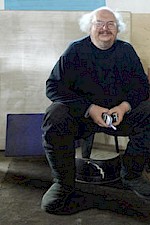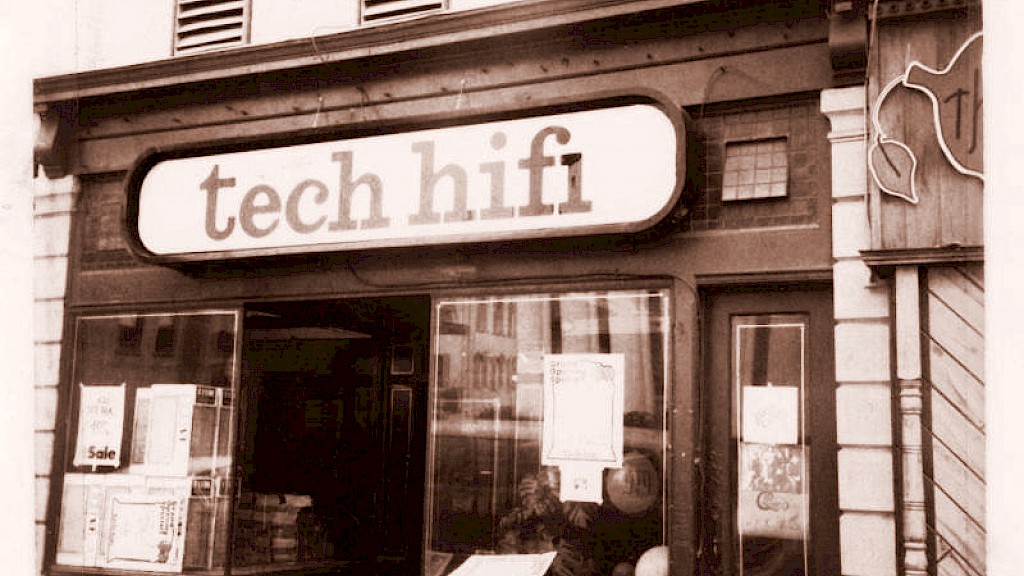Getting Started (my beginning in audio)…
Iowa:
For some, the college experience is life-changing. Mine certainly was. Music played only a minor role in my youth (trying out for the band in junior high and having a piano at home); but, machines always fascinated me. I bought a non-functioning 1929 Ford before I had a driver’s license and got the car to run before I could legally drive it. This was in Iowa back when you only had to be 15 to get a learner’s permit. Then, I went to MIT as a scholarship student.
MIT:
Bob Jones (AKA Jonesy) was the senior advisor on my floor in the dormitory. He was paid by the school to help freshmen get oriented to the school and to the Boston area. He was a talented guitar player and would hang out at Club 47 in Harvard Square and Unicorn Coffee House across the bridge in Boston (both within walking distance of our dorm). He would bring his guitar and accompany performers and occasionally play solo. He would also practice day and night, so there was live music on my floor much of the time. I would tag along. This was my real introduction to music, up-close-and-personal.
Stereo System:
Another upperclassman on the floor had one of the few stereo systems. It consisting of a pair of Harmon-Kardon kits he had assembled himself: Citation I & II. His turntable was an Empire 298 with a Shure cartridge installed. I have forgotten the speakers; but when he brought them out into the hallway, he could crank them up loud enough that everyone could hear them just fine. Toward the end of my first year, I traded rooms with Jonesy since he had the largest on the floor and it was a bit of a social center. Music and philosophical discussions raged into the night. Jonesy dropped out of MIT shortly before he was graduated to pursue his music career as a traveling guitar player. He “walked-the-walk” of the “Do-what-you-love” philosophy that he always espoused. As you can see, having a stereo was very high prestige in 1964.
Scholarships:
As a scholarship student, I had to present a budget to justify the money and loans the school was providing. A stereo was not a justifiable expense. With some modest research, I learned that most of the Boston area dealers sold only for list price, or maybe they’d give you a small “system” discount. And there were New York mail order stores offering 20-30% off list prices. I was at MIT – I could do the math: if I could get eight people to buy systems at 10-15% off, then my system would be covered in the difference. I printed up post cards offering 10% off and posted them in all the dormitories and bulletin boards around campus. I only got five orders; not enough to cover the cost of my total system but still a much larger order than just one system.
Incomplete system:
I submitted my new request to the New York dealers and got slightly better prices than before. I took these prices around to a couple of the lowest-priced Boston dealers. One of them agreed to match, actually beat, most of the prices. Equally important, I did not have to accumulate big orders. I could work as a campus representative for him and earn as a commission any margin above a certain price. I bought a Dynaco kit with my first commissions. Tech (nickname for MIT) Hifi was born and the Dyanco was the first part of my stereo system that I am still working on today.
Keeping at it:
Since I was not able to buy a complete system, I updated the postcards and continued sales. If I had been successful in this first effort and bought a complete system, I probably would have finished my degree at the Sloan School of Business (with a mechanical engineering minor) and gone to work in the automotive industry as I had expected. But, I continued selling and used some of the income to buy some inventory of good moving equipment.
Another roadblock:
My reputation on campus grew for having good prices on stereo equipment; but even more importantly, giving good advice. Now, another roadblock was placed in my path: local audio dealers complained to the school that I was unfairly competing with the retailers as I was selling out of tax-free property – my dorm room. I was told to stop selling or get off campus. I rented a 20’ x 20’ room across the street from the gym and diagonally across from the main MIT buildings. I paid the rent and let the other MIT entrepreneurs use it, getting us for-profit folks on tax-paying property. Once again, if the local audio dealers had not made such a fuss, I would probably have been out of their hair upon being graduated. Now I had to recruit staff to man my retail store. This one-shot project for a bit of work was growing into something real…
That was my beginnings and I’ll talk about my lucky timing some time soon.
Thanks for letting this old man reminisce.
Enjoy & Good Listening!
John
Subscribe to Ohm News & Views to get the latest posts in your inbox
John Strohbeen Author
John Strohbeen was the President and Chief Engineer of Ohm Acoustics from 1978-2023.


